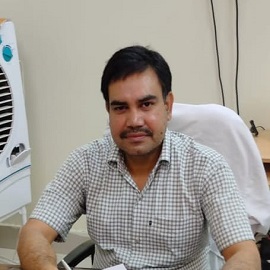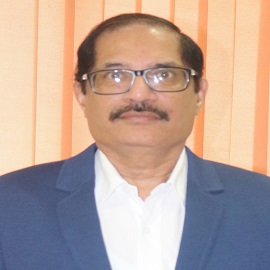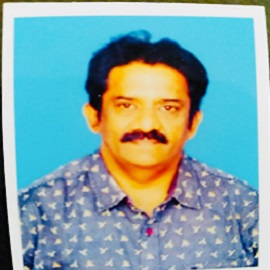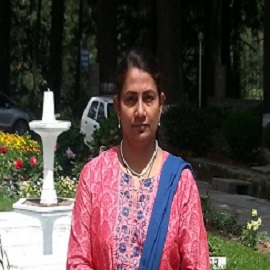Agenda
Conference Schedule
Day 1 full schedule
November 17, 2022 @ 10:00 - 15:00

Dharmendra Kumar
Asso. Prof. & HeadCity University of Hong Kong, China
India
ABSTRACT
Vector and vector-borne diseases are still impacting animal and human health at a global scale and vaccine development or molecular diagnostics are very selective, often targeting one of the pathogens transmitted by such arthropod pests without killing those vectors and the other pathogens they can transmit. An alternative and effective solution to prevent the transmission of vector-borne pathogens (bacteria, viruses, parasites and fungi) would be based on an integrated control and treatment measures to kill the arthropod vectors such as mosquitoes, ticks and mites transmitting these pathogens. However, those arthropod pests, usually blood/lymph feeders, are mainly ectoparasites and are not directly in the bloodstream of the animal host exposing them to their immune defenses.

Suchitra Sena Dande
Principal ScientistICAR-Directorate of Poultry Research, India
India
ABSTRACT
The fundamental factors of a healthy broiler production system are optimal performance, minimal nutrient excretion, and health. In poultry, antibiotic use is done for therapeutic, prophylactic as well as increasing growth and feed efficiencies. Intensive use of antimicrobial and anti-parasitic drugs in broiler production can result in residues of these products in edible tissues, such as muscles and the liver. Feeding antibiotic growth promoters (AGPs) to farm animals may lead to antibiotic-resistant human and animal pathogens. Many expert panel discussions all over the world opined that the use of low-dose antibiotics in food animal production exerts a strong selective force to develop resistance, which is irreversible, posing treatment problems for the future. Owing to the maximum use of antibiotics in livestock farming, the farm environment itself serves as a reservoir for resistance genes. Random mutagenesis as well as the horizontal transfer of genes is the mechanisms responsible for developing antibiotic resistance.

Kurcheti Pani Prasad
Principal ScientistIndia
ABSTRACT
Despite the gains that have been recorded in Agricultural practices especially in the developed countries as a result of technological advancement; Africa has remained a continent marked by poverty and food shortages even though majority of the African people are farmers. One important relationship between animal husbandry and crop production is that the former produces manure (organic fertilizer) through animal droppings or wastes which help to fertilize the soil for the latter. This is preferable to chemical fertilizer which has been shown to have toxic effects on the soil, crops and to some extent on the consumers (animals and humans). In addition, the natural tastes of the crops are sometimes lost. It is on record that the cheapest and easiest to procure animals that most African people keep domestically are the monogastrics (Pig, Poultry and Rabbit) hence no matter how poor a family is, it is very common to keep at least one or two of these three monogastric types. One major disadvantage of keeping these non – ruminants is the pollution caused by their wastes and urine which results in foul smell, accumulation of flies and disease outbreak. However, they can thrive on easy to obtain feeds which include kitchen wastes, maize by-products, local brewing waste products etc. and converting them generally into meat of high protein quality and calorific value. This paper examines the agricultural and economic advantages of these animals in the African context, how to manage their negative impacts and rebrand their production to alleviate poverty in Africa.

M V A N Suryanarayana
Professor & HeadSri Venkateswara Veterinary University, India
India
ABSTRACT
Eye surface infrared thermography usefulness as a noninvasive method of measuring stress response in sheep during shearing: correlations with serum cortisol and rectal temperature values

Francesca Arfuso
ResearcherUniversity of Messina, Italy
Italy
ABSTRACT
India is the third-largest egg producer in the world FAOSTAT (http://faostat3.fao.org ). Poultry sector contributes 1% to GDP; the poultry development in the country has revealed 6-7% growth rate per annum in layers. Poultry inclusive of chicken contributes significantly as egg and meat for human consumption (Harlan, 2007). For each degree rise in temperature between 96-1000F a 2-3 % loss of feed intake has been reported. As the ambient temperature increases from 60-960F the percentage of sensible heat loss decreases from 80% to 20% and evaporative heat loss increases from 20% to 80% (www.ces.ncsu.edu). Feed fortification with supplements like synbiotics, phytobiotics can help in alleviating heat stress (Tirupati and Reddy, 2015, WATT AgNet.com). The hypothalamic and gastrointestinal tract peptides are involved in the appetite regulation in laying hens exposed to heat. It is known that yeast culture has beneficial effects on the production performance of ruminants and monogastrics.
Dr. Pallvi Slathia
Ph.DUniversity of Messina, Italy
India
ABSTRACT

Dr. Kanchan Walwadkar
Senior Assist. Prof.Universidad Autónoma Metropolitana Iztapalapa, México
India
ABSTRACT




